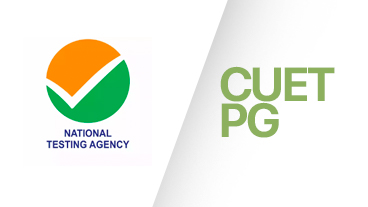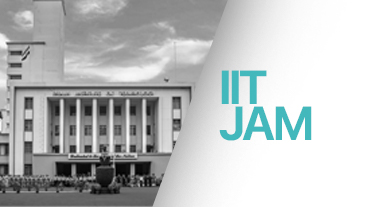Mastering TISSNET: An In-Depth Guide to Success
by Noufal Ali
The blog provides a comprehensive overview of TISSNET - the annual entrance test conducted by Tata Institute of Social Sciences. It covers the exam's structure, eligibility criteria, key preparation strategies, and the range of programs offered by TISS. Additionally, it navigates the admission process, providing crucial insight for aspiring candidates.
LAST UPDATED: Jul 17, 2023
What is TISSNET?
TISSNET, short for Tata Institute of Social Sciences National Entrance Test, is an annual national-level examination conducted by TISS to facilitate admissions to its prestigious M.A. programs. These programs are considered equivalent to management programs (MBA/PGDM) offered by reputed B-schools in India. Along with the M.A. courses, TISSNET scores are also essential for admission to various other programs, including M.H.A, M.P.H., M.Sc., B.Ed-M.Ed, and more, offered by the institute.
The TISSNET exam is held in a computer-based mode at over 100 test centers across various cities in India. Every year, around 40,000 candidates appear for the exam. The difficulty level of TISSNET is comparable to other well-known entrance tests like NMAT, CMAT, and similar ones.
When is TISSNET held?
Typically, TISSNET takes place in the months of January or February. The official notification for TISSNET is released in December, and the registration process remains open for about a month. Interested candidates can apply for the exam at the official site: admissions.tiss.edu. For reserved category candidates, TISS usually organizes a pre-admission orientation program in the last week of January. Admit cards can be downloaded from the official website approximately 10 days before the exam. TISSNET results are declared in the month of March, and shortlisted candidates move on to further admission rounds based on the merit list prepared by the institute.
What is the structure of TISSNET?
TISSNET is an objective test comprising 100 questions. The test includes questions related to general aptitude, mathematics, reasoning, verbal proficiency, and general awareness. The exam pattern for TISSNET 2024 is as follows:
- General Awareness: 40 Questions
- Mathematics & Logical Reasoning: 30 Questions
- English Proficiency: 30 Questions
The duration of the TISSNET test is 100 minutes, and each correct answer is awarded 1 mark. There is no negative marking for incorrect answers. Each multiple-choice question presents four answer options. Additionally, there are no sectional time limits in TISSNET.
Syllabus for TISSNET 2024
The TISSNET syllabus for 2024 covers the following topics for each section:
English Proficiency: This section includes questions from Reading Comprehension, Verbal Reasoning, and Grammar. Typically, there are 2 Reading Comprehension passages with 4-5 questions each. The comprehension part assesses the candidate’s proficiency in understanding management-related literature. The section also includes vocabulary-based questions like word choice, odd-one-out, synonyms, antonyms, analogies, sentence correction, etc.
Mathematics and Logical Reasoning: This section aims to evaluate the quantitative and reasoning skills of the candidates. It covers topics from Arithmetic, Geometry, Trigonometry, Statistics, Data Interpretation (DI), and Analytical reasoning. Questions associated with the Data Interpretation segment check the candidate’s ability to understand data related to different domains such as economy, business, and market functions.
General Awareness: The General Awareness section involves questions from both static GK (General Knowledge) and current affairs. The focus is mainly on socio-political issues and economic developments. Other areas covered are sports, science, environment, art and culture, etc. Certain questions assess the candidate’s awareness related to the business sector and functional areas of management.
Who can appear for TISSNET?
TISS follows a relatively relaxed eligibility criterion for its entrance exam. The basic requirements to fulfill before appearing in TISSNET are:
- Candidates must have completed a Bachelor's or Master's degree with a minimum of 3 years duration or equivalent (under the 10+2+3 or 10+2+4 or 10+2+2+1 year bridge course pattern or any other pattern fulfilling the compulsory requirements of 15 years formal education) from a UGC-recognized university.
- Final-year students can also appear in the exam. These candidates must have completed their final year degree (including all examinations and internships, if applicable) by June 2024.
While the above-mentioned eligibility conditions apply for TISSNET only, the institute specifies additional requirements for different programs. For example, for M.A. (ODCL), the candidate needs to have a minimum of 2 years of professional working experience to seek admission. Similarly, for M.A. in Applied Psychology or Urban Policy, candidates must have a bachelor’s degree in the related field. The complete details about the program-specific eligibility are available on the institute’s official site.
What courses are offered by TISS?
TISS offers a diverse range of 57 Masters and 3 PG Diploma programs across its campuses in Tuljapur, Hyderabad, Mumbai, and Guwahati. All four campuses are interconnected, allowing access to online library and classes through a common platform. They also have a unified placement process with the same set of rules. TISS has a distinguished faculty and a conducive environment for studies in social sciences. The institute offers multiple specializations in the following main fields:
- M.A. (Social Work)
- M.A. (Human Resource Management/Labour Studies)
- M.A. (Health Systems Studies)
- M.A. (Development Studies)
- M.A. (Education)
- B.Ed-M.Ed (Integrated)
- M.A./ M.Sc. (Habitat Studies)
- M.A. (Disaster Management)
- M.A. (Applied Psychology)
- M.A. (Media and Cultural Studies)
- Master of Library and Information Science
- Master of Law (LLM)
Most of these fields have further bifurcated into specialized master degree programs. Out of the total programs offered, 32 are available at the Mumbai campus, while each of the other campuses offers 4-8 programs. The number of seats varies from course to course, with the lowest being 15 seats in M.A./M.Sc. (Water Policy & Governance) and the highest being 68 seats in M.A. (HRM/LR).
Admission Process at TISS
The selection process at TISS consists of two major stages: TISSNET and Assessments. During the first stage, the reservation rules do not apply. Based on their TISSNET scores, candidates are shortlisted for the next stage. The final score is calculated based on marks allotted to both stages, with TISSNET having a weightage of 50 percent, Extempore 20 percent, and Personal Interview 30 percent.
Assessments
The Assessments stage involves a three-member panel conducting online/offline assessments to evaluate the candidate’s interest and readiness for the chosen program. The Assessment duration is 20-30 minutes and comprises the following screening stages:
Extempore: The candidate selects one topic from the two available options and speaks on it for 2-3 minutes. The topics are generally related to the program chosen by the candidate.
Personal Interview: In the last stage, candidates attend an online/offline personal interview where the interviewers probe them on their knowledge of social and economic issues. Questions regarding graduation subjects, hobbies, etc., usually form the basis for discussion.
Preparation Tips for TISSNET 2024
To prepare effectively for TISSNET 2024, candidates should start by working on their vocabulary and reading comprehension skills. Broadening the vocab base and improving comprehension skills can be achieved through regular reading habits, including newspapers, magazines, books, etc., to stay updated on current affairs, which is crucial for the General Awareness section.
- For the English Proficiency section, candidates should focus on verbal reasoning and grammar-based topics. While learning grammar rules is essential, achieving mastery in reasoning questions can be accomplished through practice.
- In the Mathematics section, understanding the fundamental concepts of Arithmetic, Geometry, and other important areas is essential. Candidates should practice chapter-wise tests to boost their speed and accuracy in this section.
- Data Interpretation and Logical Reasoning may not have fixed rules and formulas, but practicing previous year papers of TISSNET can help candidates get a hold on these topics.
After building confidence in their knowledge, attempting complete mock tests for TISSNET 2024 is ideal. Analyzing strong and weak areas after the mock tests allows candidates to devise an exam strategy that works best for them and helps them achieve a great score.
In conclusion, with thorough preparation and a well-focused strategy, candidates can excel in TISSNET and secure admission to their desired programs at TISS. If TISS is on your mind, it is time to start preparing now! Gather your resources and make a dedicated effort to come out with flying colors in the exam! For more guidance and preparation material, candidates can visit the Prepwise UG Plus website or app and start Prepping Now!
As you embark on your journey to crack TISSNET and secure your place at the prestigious Tata Institute of Social Sciences, consider enhancing your preparation with the Prepwise UG Plus coaching programs. Our meticulously crafted study modules, mock tests, and guidance from experienced tutors are aimed at providing a comprehensive approach to the exam. We believe in nurturing individual potential, and our programs are designed to equip you with the knowledge, skills, and confidence you need to perform your best. Let us help you turn your TISSNET aspirations into a rewarding reality. Begin your Prepwise journey today!
________________________
Want to share this article?
Your mobile number will not be published. Required fields are marked *















